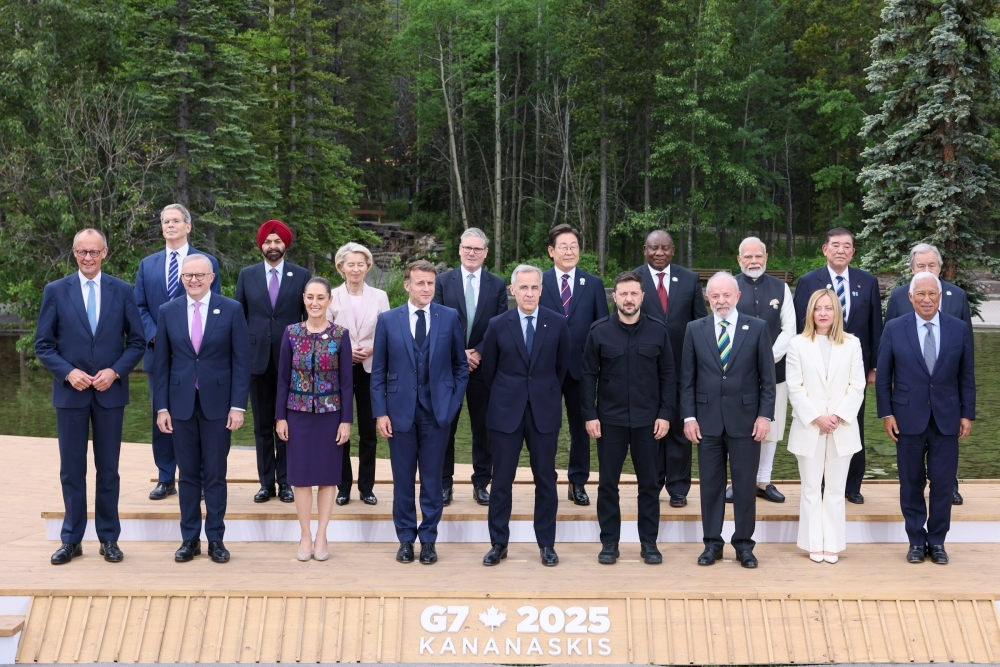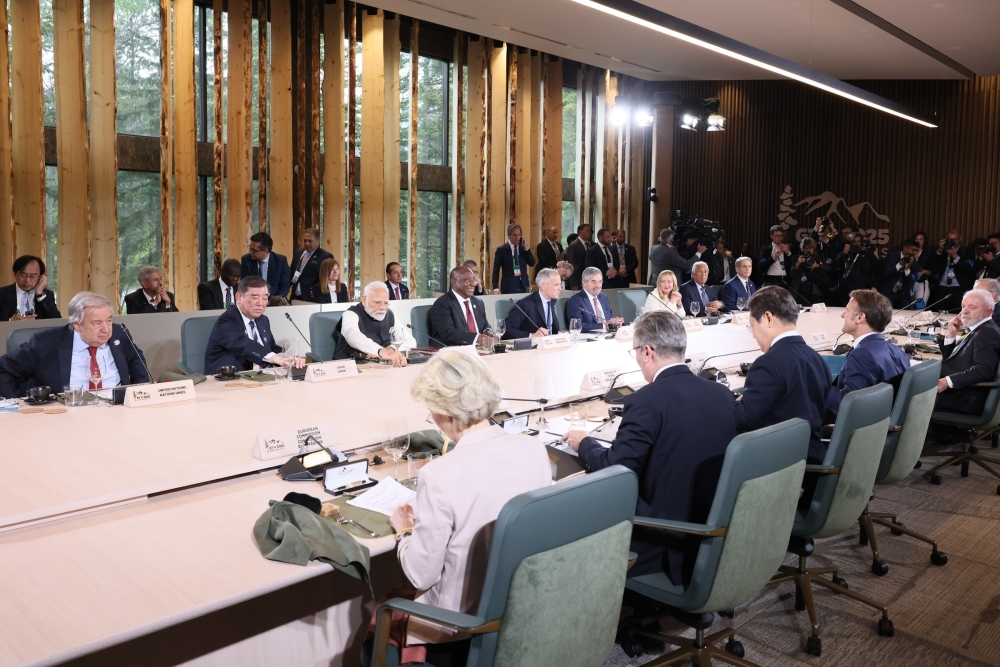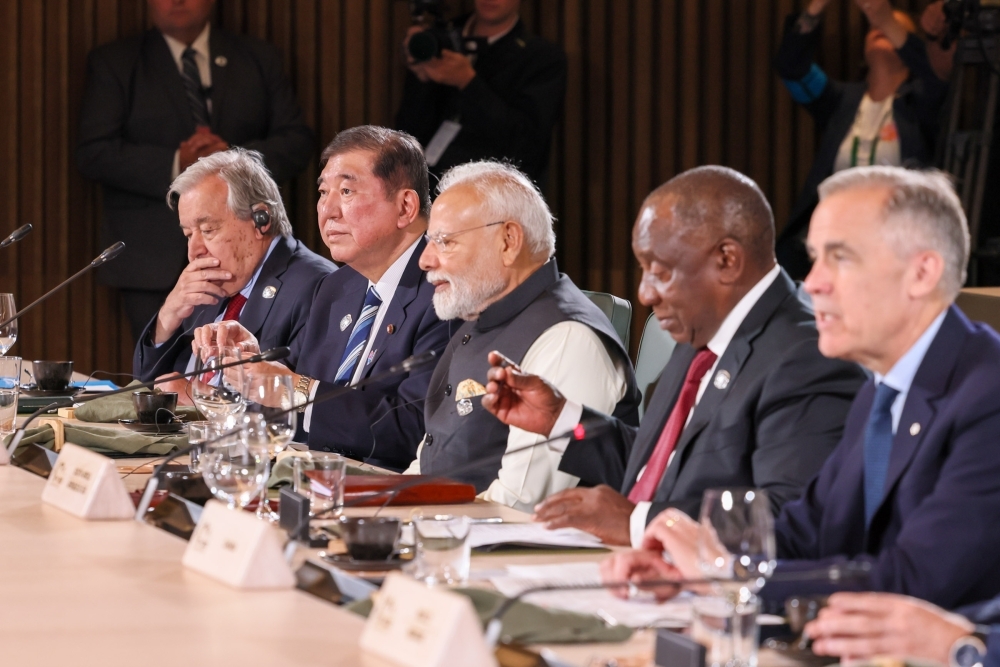G7
G7 Kananaskis Summit
Session 7 “Energy Security”
June 17, 2025
 (Photo: Cabinet Public Affairs Office)
(Photo: Cabinet Public Affairs Office)
 (Photo: Cabinet Public Affairs Office)
(Photo: Cabinet Public Affairs Office)
 (Photo: Cabinet Public Affairs Office)
(Photo: Cabinet Public Affairs Office)
On June 17, commencing at 1:55 p.m. (local time. 4:55 a.m. on June 18, Japan time.), for approximately 140 minutes, Mr. ISHIBA Shigeru, Prime Minister of Japan, attended the G7 Kananaskis Summit Session 7 “Energy Security”. The overview of the session is as follows.
1. Diversifying Energy and Enhancing Supply Chain Resiliency
- Prime Minister Ishiba emphasized that Japan will vigorously promote the use of energy sources that contribute to energy security such as renewable energy and nuclear power, and will also take the lead globally in diversifying supply sources such as LNG and in deploying new technologies for decarbonization such as hydrogen and ammonia, and carbon dioxide capture and storage.
- Prime Minister Ishiba pointed out that, in addition to the diversification of energy sources, the enhancement of supply chain resiliency and the diversification of the supply chain that support them are also challenges that the G7 and the partner countries and organizations should work together. From this perspective, he welcomed the agreement reached at the G7 Finance Ministers and Central Bank Governors’ Meeting in May to expand activities of the “RISE (Partnership for Resilient and Inclusive Supply-Chain Enhancement)”, which Japan has been leading together with the World Bank, to include Latin America and the Caribbean as targeted regions and to broaden the scope of activities to cover the entire supply chains.
- Furthermore, Prime Minister Ishiba stated that Japan will contribute to the development of industries and the strengthening of supply chains in resource-rich countries such as Australia, Latin American and African countries through exploration activities and human resource development.
2. Technology, Innovation, and Infrastructure Cooperation
- Given the inevitable sharp increase in energy demand due to the widespread use of AI, Prime Minister Ishiba stated that it is necessary to utilize all forms of available energy sources, including nuclear and gas-fired power, while also expanding decarbonized power sources through innovation such as perovskite solar cells, next-generation geothermal power, and next-generation innovative reactors. Furthermore, he pointed out the importance of advancing efforts for the realization of fusion energy and take further steps toward its realization in the future.
- Prime Minister Ishiba stated that Japan will actively contribute to the decarbonization.
- Prime Minister Ishiba pointed out the importance of quality infrastructure investment, which Japan has taken initiative in advocating. He also stressed the need to support large-scale infrastructure as well as grassroots efforts to improve the living standards of developing countries, such as providing electricity to rural areas and ensuring access to drinking water. Moreover, noting the importance of mobilizing private finance, he highlighted Japan's efforts this year to expand the Japan International Cooperation Agency (JICA)’s financial instruments to enable guarantees and bond subscriptions for companies in developing countries. He also emphasized the need to improve implementation of the G20 “Common Framework” and enhance debt transparency to ensure debt sustainability.
- Prime Minister Ishiba stated that Japan will take its responsibility to continue to support the growth of developing countries, with an eye on the 9th Tokyo International Conference on African Development (TICAD 9) to be hosted by Japan in August this year.

